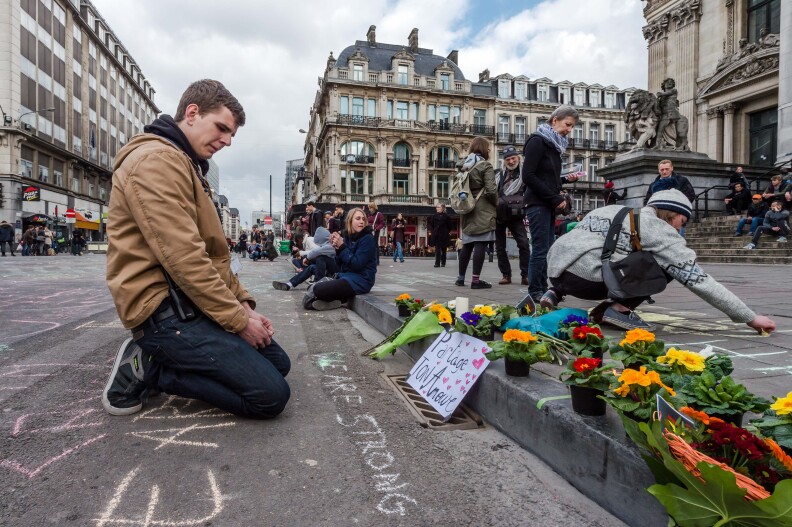Tuesday’s attacks in Belgium have law enforcement around the world on alert.
Two explosions in Brussels — one at an airport, the other on a train — have left more than 30 people dead.
The attacks come just four days after the arrest of Salah Abdeslam, and authorities think there may be a connection: at least one of the attackers is believed to have been wearing a suicide vest.
Later Tuesday, a website operated by the Islamic State claimed responsibility.
It's hardly the first time the words “Belgium” and “terror” have shared a headline.
Among the thousands of foreign nationals who have left their countries to join the Islamic State, Belgium has yielded the most.
For more on Belgium and its unique relationship with extremism, Take Two spoke to Bruce Hoffman, director of Georgetown University’s security studies program and author of the new book, “Anonymous Soldiers.”
Bruce, what makes Belgium a petri dish for global terrorism?
Talk to me about Belgium and its relationship with the immigrant population. Have they faced difficulties in the past?
From a law enforcement standpoint, what are the challenges when it comes to preventing these attacks and stopping ISIS from recruiting remotely like this?



